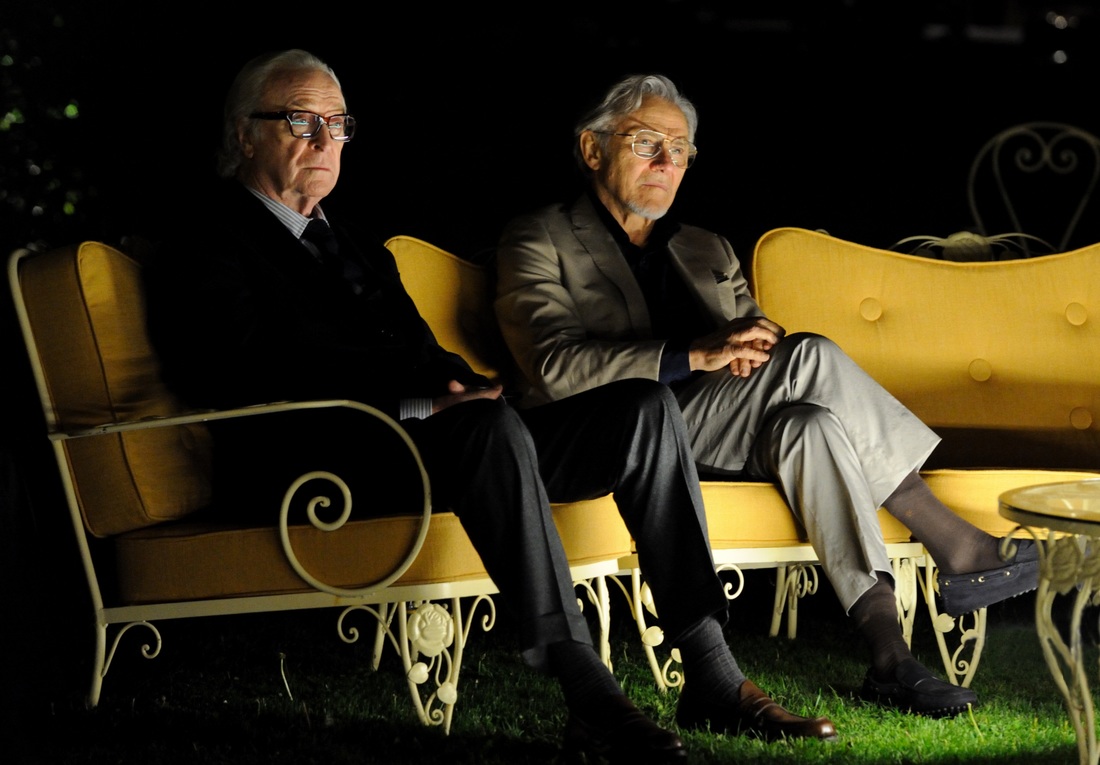Michael Caine and Harvey Keitel play lifelong friends who have both been fortunate enough to find success in their careers: Caine’s Frank Bellinger is a revered composer intent on staying retired while Keitel’s Mick Boyle is a writer collaborating with a young team to finish his twenty-first film. Their fame allows them to vacation in the lap of luxury, spending their twilight years at a grand Swiss resort buried between the Alps. Their relaxation is interrupted when Frank gets pestered by the Queen of England’s lackies to perform his pieces again. His daughter, played by Rachel Weisz, encounters trouble as well when her husband, Mick’s son, leaves her for a pop star. In one of the film’s more successful scenes, Mick declares this new partner “the most insignificant woman on the face of the planet,” and it’s unclear whether he’s insulted by his son’s separation or if he’s recognizing an impression of his own past disappointments. From there, Mick has problems finding an ending to his script and guaranteeing the involvement of his lead actress (Jane Fonda, whose short time on screen is among the best in the film). As the characters’ issues continue to pile up, the resort stays in constant motion around them: new musicians, a few of them real life artists, perform on a rotating open-air stage each night, saunas and bathhouses are continually filled and emptied of elderly occupants, and Mick amasses a debt taking bets with Frank on whether a couple will ever talk at dinner.
The friendship between Frank and Mick is the lifeblood of the film and what carries the story through it’s rougher moments. Caine and Keitel make the relationship work; just like the characters they’re portraying, they’ve both lead artistic lives and have their respectable achievements behind them. The numerous scenes of the pair strolling through the resort grounds reminiscing on their past adventures come off as outings they may already go on once the lights and cameras are gone. Paul Dano’s role as an actor recognized for his single superhero role while his more serious work remains forgotten is reminiscent of 2013’s Birdman, although it’s much less intense: Dano’s Jimmy Tree is more annoyed than furious. It’s hard for the characters to stay angry for very long when their days are wrapped in the beauty of the mountains.
There are moments to love in the film: Frank’s orchestration of a field of grazing cows produces a beautiful bell symphony, and Mick daydreams of being visited by his former leading ladies on a rolling hillside (despite his fading memory, he never forgets anything he’s shot). The credit for these scenes goes to Luca Bigazzi, who Sorrentino was smart enough to utilize again after his cinematography made The Great Beauty such a pleasure to look at. Unfortunately, Sorrentino has also retained his awkward implementation of special effects; in The Great Beauty, CG flamingos and a fake giraffe left scenes aiming for emotional resonance feeling hollow and Youth features a similarly misused green screen shot that disrupts any momentum the film’s final minutes had. And the ending is where Youth makes its biggest misstep: a story concerned with meditations on the relationship between love and time confuses itself by suddenly thrusting emotional climaxes into the lives of Frank and Mick. It’s difficult to feel the weight of the pair’s actions when the rest of the movie has them ogling supermodels and trying to figure out if one of them slept with a mutual crush.
While The Great Beauty was steeped in cynicism, Youth is more interested in reflection. It’s characters are separated from the stress of the world and left to muse on how they’ve spent their time finding a place in it. Sometimes they look back with regret, but more often their memory is tinged with humor. Ultimately, Youth is frustrating because the moments that are so easily enjoyable are dragged down by plodding scenes that hamper whatever good will you held, but the film is still worth watching for those flashes of brilliance. This is a movie to watch when you’ve extinguished your backlog of conventionally good films and want to see an unevenly great one. The best recommendation I can give to Youth is that the worst parts are forgettable, so you’ll only remember the good things.
Grade: C+

 RSS Feed
RSS Feed
